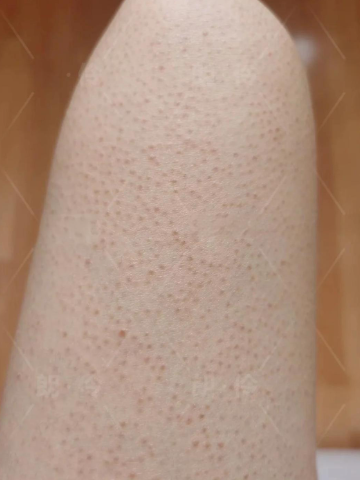
There is a language spoken between long-term partners that needs no words. It’s in the comfortable silence during a evening drive, the knowing glance across a crowded room, and the simple, habitual touch of a hand on a shoulder. This touch is meant to be a punctuation mark of comfort, a silent “I’m here.” But sometimes, when you reach out, instead of the familiar warmth, you feel a subtle, almost imperceptible shiver run through their skin. It’s a quick, involuntary tremor, there and gone in an instant.
It’s easy to dismiss it as a chill in the room or a passing breeze. But if you notice it happening consistently—a slight flinch, a ripple of tension under your fingertips when you initiate contact—it’s worth paying attention to. This isn’t a random twitch. Shivers at your touch? Their skin remembers… a history that the heart is still processing.
Before we jump to the darkest conclusions, let’s be clear: the skin is not just an organ; it is a diary. It records every sunburn, every scar, and every caress. And for a body that has lived five, six, or seven decades, that diary has many entries. A shiver can be the body’s way of turning the page to a chapter written long ago.
The Echo of Old Wounds
The most profound reason for this reactive shiver is past trauma. The body, as psychologists have shown, truly does keep the score. If your partner has a history of physical pain, abuse, or even prolonged medical trauma, their nervous system can be wired for hypervigilance.
A touch, even a loving one, can be misinterpreted by a nervous system that is perpetually on alert. It’s not that you are a threat. It’s that their skin’s memory has been conditioned to interpret sudden contact as a potential prelude to pain. The shiver is a tiny, automatic alarm system going off—a flashback written in the language of nerve endings, a ghost of a past hurt that their mind may have boxed away, but their body has not forgotten.
The Chill of Emotional Distance
Sometimes, the shiver has nothing to do with a distant past and everything to do with a present, emotional frost. In a long-term relationship, it’s possible for two people to slowly, imperceptibly drift apart. Resentment, unspoken disappointments, and a lack of emotional intimacy can build an invisible wall between you.
When you reach out to breach that wall, the touch can feel jarring to the person on the other side. It’s not that the touch is physically cold; it’s that it feels emotionally dissonant. The shiver is the body’s honest reaction to that dissonance—a physical manifestation of the question, “Why now?” or “Where has this tenderness been?” The skin, in its simple, truthful way, is reacting to the emotional distance that words have failed to bridge.
The Simpler, Physical Explanations
Of course, we must always rule out the mundane before settling on the profound.
- A Body in Change: As we age, our circulation can change. Conditions like anemia or thyroid issues can make a person feel cold more easily. Your warm hand on their cooler skin could simply be creating a temperature differential that causes a brief, physical shiver.
- Neurological Twitches: Benign fasciculation syndrome or other minor neurological quirks can cause random muscle twitches that have absolutely nothing to do with emotion or memory.
- Medication Side Effects: Many common medications can affect the nervous system or circulation, making someone more sensitive to touch or temperature.
The Conversation: Listening to the Body’s Whisper
If this shiver has become a pattern that worries you, the worst thing you can do is accuse or demand an explanation. The body is whispering a truth; you must listen quietly to hear it.
Instead of a confrontational “Why do you flinch when I touch you?” try a more compassionate approach. Choose a calm moment, away from the act of touching, and say:
“I’ve noticed sometimes when I touch you, you seem to shiver. I just want to make sure you’re okay. Is everything alright? Is there anything you need, or anything you’d like to talk about?”
This frames you as a concerned partner, not a detective. It opens a door for them to talk about a physical pain they’ve been hiding, a stress they’re carrying, or even a past hurt they’ve never felt safe enough to share.
A shiver at your touch is a moment of profound honesty from a body that has lived a long life. It is rarely a rejection of you in the present. More often, it is an echo from the past, a signal of a present disconnect, or a simple message from a changing body. By meeting that shiver with curiosity and compassion instead of fear and accusation, you do more than just solve a mystery. You honor the complex history of the person you love, and you create the safety for their skin to learn a new, more peaceful memory, written by your hand.